Annual screenings should start at 40 for most — but some people should start younger
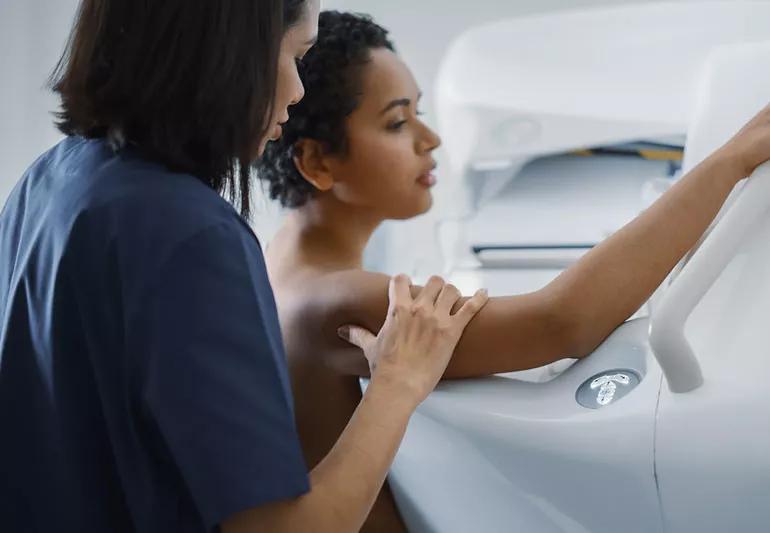
You’ve probably heard it before, but let’s say it again: Getting regular mammograms is incredibly important for your health. That’s because mammograms are the absolute best tool we have for detecting breast cancer. And that matters. Because breast cancer is one of the most common cancers in females in the United States. It’s second only to skin cancer.
Advertisement
Cleveland Clinic is a non-profit academic medical center. Advertising on our site helps support our mission. We do not endorse non-Cleveland Clinic products or services. Policy
But recommendations for who should get mammograms and how often have changed over time. Those guidelines may vary depending on who you ask. And they’re not one-size-fits-all.
It’s not you. It can be confusing for a lot of people.
We talked with diagnostic radiologist Laura Dean, MD, to sort it out, so you can be confident you’re taking the best care of yourself and managing your breast health.
The most widely accepted recommendations say that females should get mammograms every year, starting at the age of 40. If you’re at higher risk for breast cancer, your provider may recommend mammograms starting earlier.
Those are the guidelines supported by American College of Radiology, the Society of Breast Imaging and the American Cancer Society. Newly proposed recommendations from the U.S. Preventive Services Task Force are slightly different. They suggest mammography screenings every two years beginning at age 40.
But most breast health specialists in the U.S. support annual mammography screenings.
“We know that lives are saved when breast cancer is found earlier,” Dr. Dean states. “The strongest evidence from all of the longest running trials is that annual screening starting at the age of 40 saves the most lives.”
Advertisement
It’s important to note these recommendations are intended for people of all gender identities who are assigned female at birth and have breasts.
Transmen who haven’t had surgery to remove their breast tissue should follow the same guidelines. Transwomen who’ve undergone feminizing hormone therapy should talk with their healthcare provider about how their treatment could affect their risk for breast cancer.
While breast cancer is rarer in men, you don’t have to have breasts to get breast cancer. Males can get breast cancer, too. And so can transmen, even after having top surgery.
Dean advises all adults to perform breast self-exams regularly. Talk with your provider if you notice any changes or are concerned about your risk for breast cancer.
For some people, earlier screening for breast cancer is better.
“Ideally, by your 30s, you’ll have a conversation and breast cancer risk assessment with your provider to understand your risk and talk about your personal plan for screenings,” Dr. Dean says.
Based on your personal risk of breast cancer, your provider may recommend beginning mammography screenings before the age of 40. Your provider may recommend additional supplemental screening tests if:
Breast cancer causes more than 685,000 deaths worldwide each year. In the U.S. it’s the leading cause of cancer death in women between the ages of 35 and 54.
Regular screening mammograms are the first line of defense.
“Mammograms are the gold standard for screening for breast cancer,” Dr. Dean notes. “Regular screening is the best tool we have to find breast cancer early and save lives.”
Early detection of breast cancer is key to treating it before it has a chance to grow or spread.
Screening mammograms can detect abnormalities in your breast tissue. To be clear: That doesn’t mean they see cancer specifically. Screening mammograms can detect if something is going on that may be cancer, or some other breast health concern. Based on those results, your provider may suggest additional tests or monitoring to understand if there’s reason for concern.
Following an abnormal mammogram finding, your provider may recommend a diagnostic mammogram or a breast biopsy to determine if tissue is cancerous or not.
Advertisement
It’s important to talk to your healthcare provider, like an Ob/Gyn or primary care physician, about your risk for breast cancer. Together, you can create a plan for screening mammograms.
Video content: This video is available to watch online.
View video online (https://www.youtube.com/embed/fn3givcaMLI?feature=oembed)
Understanding Mammograms
Advertisement
Learn more about our editorial process.
Advertisement
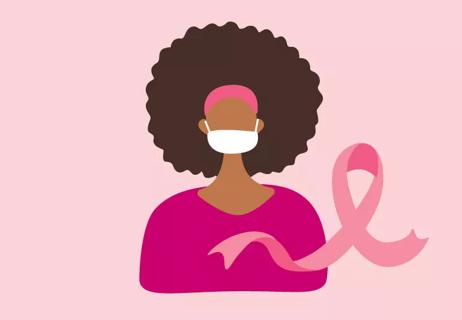
And find out why it's not a good idea to skip one
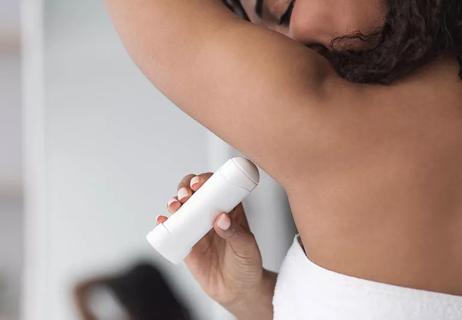
Research doesn’t show a link between the personal hygiene product and breast cancer
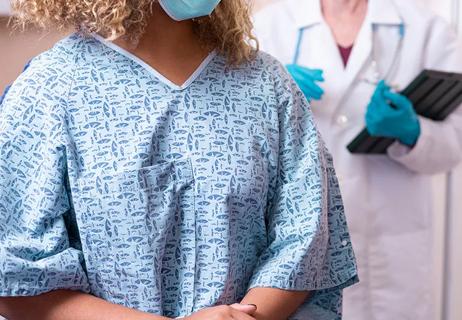
The short answer from a radiologist
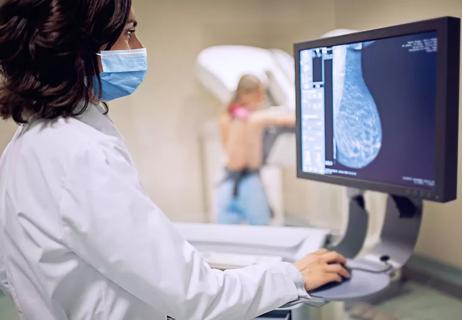
The short answer from a diagnostic radiologist
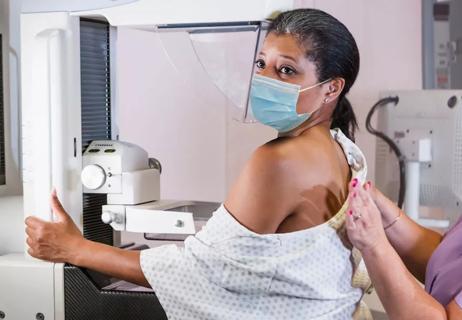
Get the short answer from a diagnostic radiology specialist

Type 2 diabetes isn’t inevitable with these dietary changes

Applying a hot or cold compress can help with pain